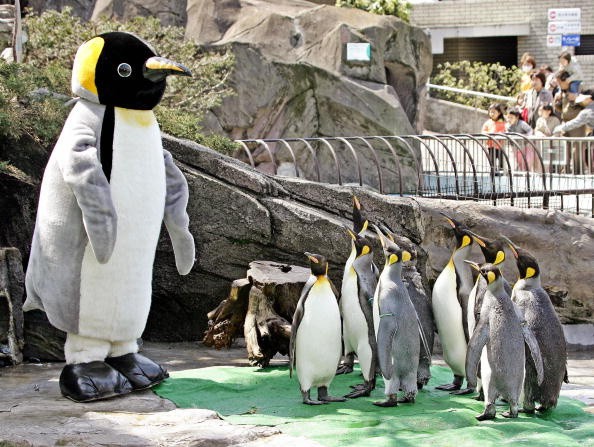An alarming new research raised concerns over the potential extinction of Emperor Penguins, and Antarctica's two-thirds species as the global heating continues to increase, affecting many aquatic animals on the planet.

Global heating has been the main concern of many scientists and environmentalists due to the impacts on marine life, animals, habitats and biodiversity. Aquatic animals feel the brunt of increasing global heating due to climate change and global warming.
Human-caused pollution and activities have contributed to the increasing warming of oceans and global heating, causing many animals to migrate to other regions.
In addition, the coral reef system is also affected by the warming of oceans, which could have a disastrous impact on aquatic animals and food sources.
The commitment of countries to reduce their global carbon emissions is important. Especially it is one of the main factors that affect our environment. As a result, experts and conservationists called for immediate climate action and response to address the problem of global heating.
Risks of extinction
The new research published in the Plos Biology journal revealed a concerning result: Antarctica's species could suffer from the threat of extinction due to global heating. It includes the popular Emperor Penguins.
In recent reports, scientists and researchers looked at the Antarctic melting of ice due to the warming of the ocean and rising temperatures. In addition, the threat of ocean warming is evident because of the impact on marine biodiversity.
According to the Guardian report, the research showed that risks and threats of extinction could occur, especially since the records suggest that population declines could emerge by 2100.
Global heating is a primary driver and causes a catastrophic impact on the marine environment and its habitats. Aquatic animals find it difficult to adapt to changing water temperatures, especially the warming of oceans.
The Guardian report urged protecting the planet's biodiversity and provided important policies to prevent the worst-case prediction to Antarctica's native species.
The report explained that Emperor Penguins and seabirds are vulnerable to extinction. Emperor Penguins could suffer from a major population decline by 2100 if the high greenhouse gas emission continues.
According to the Guardian, researcher and Dr. Jasmine Lee explained that Antarctica's biodiversity suffers from pressure, noting that other people thought the region was pristine. Lee is also a co-author of the study.
Commitment and global actions
The report explained that human-caused activities in Antarctica could help save the species there. Educating the tourists could raise awareness about the said species under threat.
The researchers, collaborating with researchers and scientists from 12 countries, emphasized the importance of global actions.
Ultimately, the research added that infrastructure and transport systems or vessels should contribute by reducing their environmental footprint. The initiative of countries and companies is important to mitigate global heating.
The research also added that the study suggested ten key management strategies for helping the said species in Antarctica. The report said that the budget or cost could reach up to US$23m annually, which could benefit most of the organisms in the region.
Related Article : Sunflower Sea Stars Suffer from Population Decline; Scientists Call for Urgent Help in Species Conservation
For more similar stories, don't forget to follow Nature News.
© 2026 NatureWorldNews.com All rights reserved. Do not reproduce without permission.





